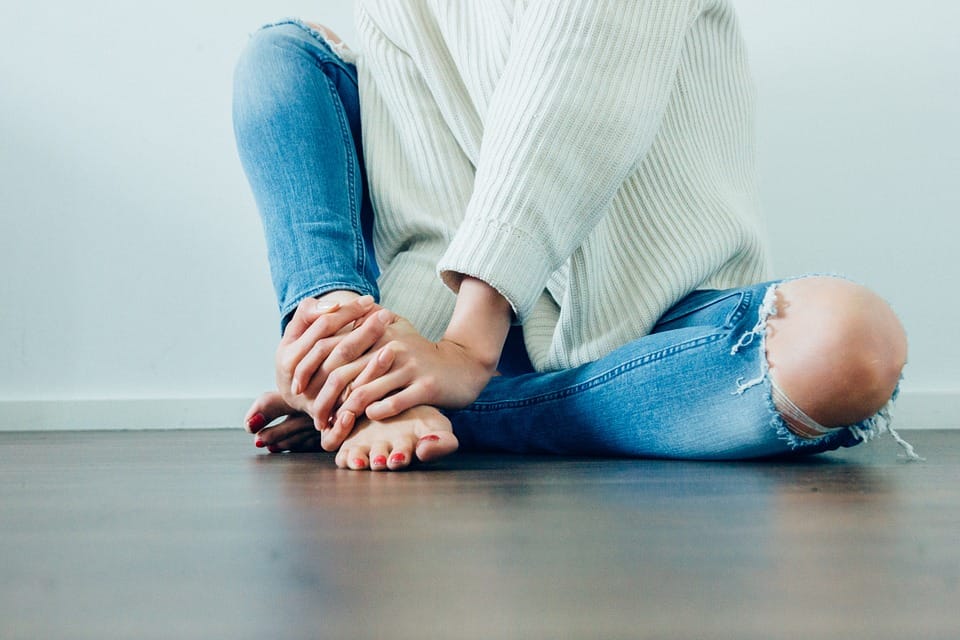Dani Kam, Content Writer at Noom
I’ve been in therapy for as long as I can remember. First to deal with my parents’ divorce; then to manage my anxiety, depression, and PTSD. Suffice it to say that I’m a therapy fangirl and I’ve learned a lot of valuable lessons about myself, life, and how to cope with the annoyances of just existing in this world. Although I maintain that therapy is the best investment I’ve ever made, it can often be inaccessible (expensive, time-consuming, or even daunting). And since I know what it’s like to not be in a financial or emotional state to start the process, I’ve decided to do a mitzvah (that’s a good deed in Hebrew). I’m going to share the top three things I’ve learned from talking about my feelings… for free.
Therapy lesson #1: Your thoughts and feelings are always valid, but they aren’t always true.
From my therapist’s lips to my ears, this had me shook. “You mean to say, I can have a thought or feeling, validate it, but not believe it? What kind of sorcery is this?” I exclaimed, in my session. As someone who has a lot of thoughts and feelings (and believes 99.99% of them) this didn’t feel anywhere near doable. My whole shtick is spiraling and creating scenarios in my mind that may or may not (emphasis on the may not) happen. So what was an overthinker like me to do? When I broke down the difference between the validity of a thought and that thought being correct, it made this pill easier to swallow. Let’s take math for example (I hate math and am terrible at it, but this makes the most sense): if I said 2 + 2 = 5, I’d be very wrong and have to repeat kindergarten. While that thought was valid (in that it existed), it’s not true, because we have evidence that 2 + 2 = 4 (at least according to every math teacher I’ve ever had). Now if we take that into a real-world example, the same logic applies. If I thought that people were talking about me every time I walked into a room and it got quiet, that’d be a pretty valid thought (people can be mean, and even if they weren’t, welcome to my brain). Even though I may feel that way, that doesn’t mean it’s true—there’s no evidence to suggest that people were talking about me, especially since my friends embraced me a minute later. Separating validity from truth has been a game-changer in my mental health excursion.
Therapy lesson #2: Happiness is an inside job.
I spent a large portion of my life seeking out happiness in experiences, other people, food—basically anything outside of myself. So when my therapist told me that happiness comes from within, I called nonsense and wondered how on Earth I was supposed to conjure up the good things when it didn’t feel like there were any good things to begin with. She explained that it’s not so much about waving a magic wand and deciding to be happy (and if a therapist tells you that, I highly recommend finding a new one), it’s about working on the emotional blocks that are holding you back from experiencing more happiness. For example, a huge source of unhappiness for me was thinking that people were mad at me or that I did something to offend them. If someone replied “K” to a text, took a touch too long to call me back, or didn’t tell me they liked (or even loved) me, I’d spiral into a tornado of agony, unable to focus on anything else. When I worked with my therapist to get to the root of this issue, things changed. We uncovered that this feeling of despair stemmed from my childhood and a certain caretaker’s behavior towards me, which made me feel small and unimportant. Realizing that I no longer sought out this person’s validation, I learned that the only person who truly had the power to validate me was me. As we continued to unblock stuck emotions, I began to see myself for who I am: a loyal friend, a great daughter, a talented writer, and so much more. I started to experience more happiness and realized that it’s no longer dependent on anyone else but *points to self* this girl.
Therapy lesson #3: Sometimes, your intense feelings are coming from a younger version of yourself.
When I feel intense anger, panic, sadness, or any other overwhelming emotion, it often feels like a stranger has inhabited my mind and body, responding however they see fit. For a long time, I believed that I couldn’t do anything to banish this unwelcome visitor, no matter how much I despised it. It wasn’t until I started working with a trauma therapist that I was offered a different perspective. My reactions weren’t a stranger usurping my thoughts, they were actually coming from someone I knew quite well: my inner child. My (and most people’s) inner child holds emotions, memories, and beliefs from the past that dictate how I behave in the present. So, it wasn’t that I had no control over how I responded to certain situations, it’s that young Dani was feeling triggered, reacting to the situation, and needing to be heard. I listened. I let her tell me what she needed and what she didn’t receive in similar past circumstances. I created space for her, validated her, and, when possible, gave her exactly what she was asking for. Sometimes that was a hug, other times that was a nap. Regardless of how I cared for her, once I soothed and reminded her that what she felt was valid, the emotions didn’t seem so intense.
Whether you’re already in therapy, interested in starting out, or not quite ready yet, I hope my nuggets of wisdom have helped you in some way. Be sure to check out Noom Mood for more mental wellness support.





